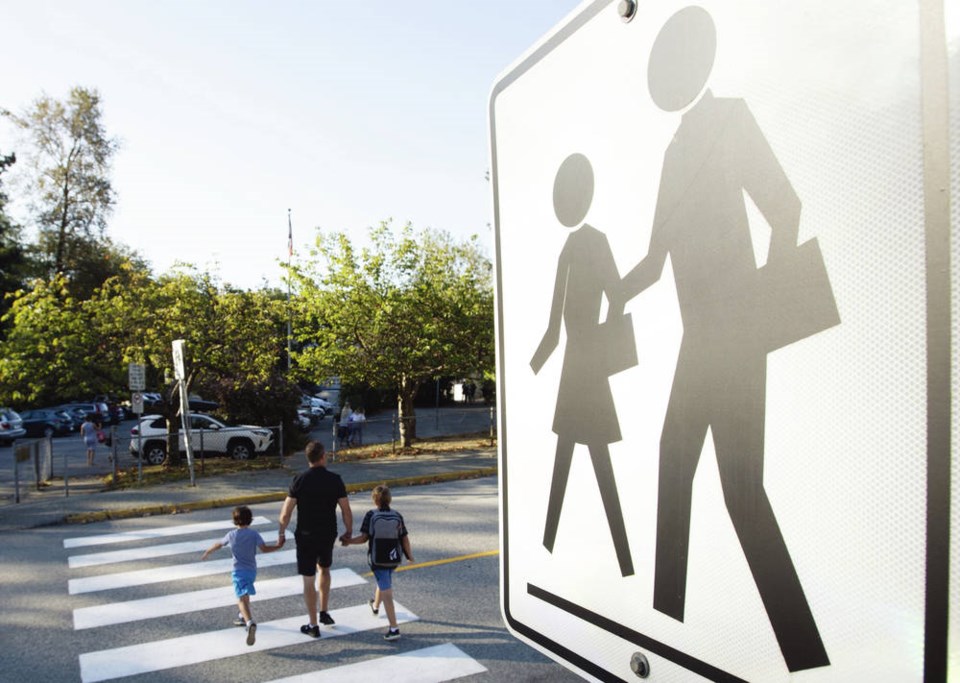Unless you’ve spent a major part of your working life in a poorly ventilated 80-square-metre classroom with 25 or so sneezing, coughing (and in the interest of delicacy, we’ll leave out the rest) kids, five hours a day for 190 or so days each year, the rest of this column might not make sense to you.
But if you have spent much of your adult life teaching in B.C.’s public schools, or plan to, data from WorkSafe B.C. about jobs most likely to be affected by COVID-19 might worry you.
In showing the number of claims relating to COVID-19 exposure in various industries and occupations, WorkSafe B.C. ranks the number of verified and adjudicated claims in the education sector second only to health-care job claims and ahead of all other claims.
“Exposure” means the presence of a lab-confirmed COVID-19 case in a school during the period of communicability.
In total, B.C. has about 45,000 teachers who meet with 500,000 kids in those packed classrooms every one of those 190 days each year in B.C.’s 60 school districts.
Those are big potential contact numbers, which causes concern about why public school teachers seem to have been left off the vaccination priority lists of “front-line workers.”
The larger problem is that nobody seems to really know what the actual symptomatic or asymptomatic situations are in our schools.
That’s partly because of the extreme difficulty, if not actual impossibility, of contact tracing in a complex public-education environment.
And it puts teachers in a tough situation, especially with the average age of public school teachers in B.C. exceeding 45, with many teachers older than that.
The B.C. Teachers’ Federation says the lack of transparent data and effective contact tracing is one of its big concerns about the work-related safety of members.
Without a clear understanding of how many symptomatic or asymptomatic cases there have been in schools, it is difficult for the union or the government or anybody to formulate a clear policy on the conduct of public education during the pandemic.
None of this implies any criticism of the response and amazing job accomplished, without delay or politicization, by B.C. health officials, government representatives and community medical authorities.
The recently published vaccination priority list has brought a welcome predictability about vaccination priorities that has kept the situation rational.
Nonetheless, there is some dismay from both teachers and parents that teachers don’t appear in either Phase 1 or Phase 2 of the published vaccination schedules along with other “front-line” workers.
There’s no argument that case numbers alone demand that residents and staff of long-term care or assisted-living facilities, along with hospital health-care workers who fulfil a variety of COVID-related responsibilities, should, based on outbreak numbers alone, top the lists.
The same could be said for remote, isolated or even local Indigenous communities that have self-identified as virus “hotspots” and should, in the interests of the broader communities, be prioritized.
But that’s not the point. It should be of great concern that 500,000 kids, most of whom have not yet reached an age that qualifies them for vaccination, are coming, untested, into the schools from their communities to meet with those 45,000 teachers in confined, improperly ventilated rooms.
So, what to do?
Moving teachers up the vaccination priority list would be a good start, and yes, many other categories of workers have also been left off the list, especially those whose jobs require frequent contact with a sometimes truculent and marginally co-operative public when it comes to mask-wearing or social distancing.
But those other workers do not spend their days in poorly ventilated classrooms with large groups of kids ages 5-18.
The pandemic hasn’t just shown that it’s important to keep schools fully functioning because they play an important role in educating students about disease prevention within their homes and communities. It has also cast light on the role schools play in enabling parent employment and keeping the wheels of the economy grinding.
Keeping teachers vaccinated and healthy and able to do their jobs in a potentially unhealthy environment would be an important first step in ensuring schools remain operational.
Geoff Johnson is a former superintendent of schools.



